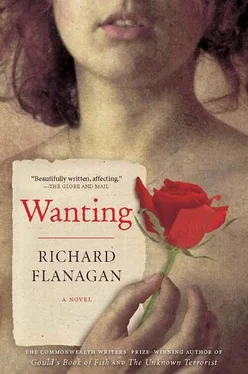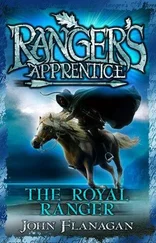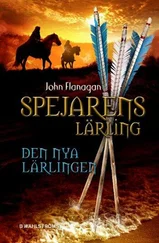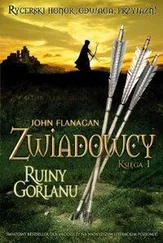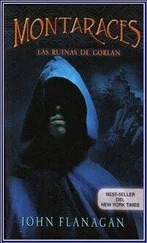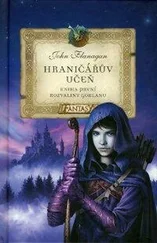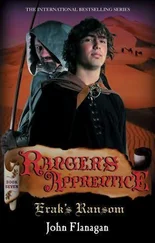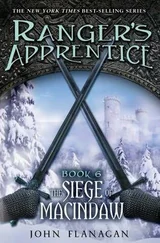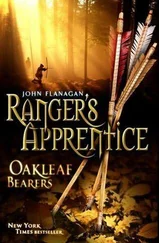Then for the first time both the Franklins understood something in Mathinna’s behaviour as the most public defeat of their time in Van Diemen’s Land. For the black child would not become white.
‘She is exasperation,’ said Lady Jane.
‘It is beyond explanation,’ replied Sir John.
‘God knows how she will fare in London,’ said Lady Jane. And with that, she turned again and left the room.
Sir John returned to the window and the pewter haze of rain. Down on the street, a beggar had taken off his ragged coat and was holding it over the head of an old crone as they hurried away. How at that moment Sir John envied the beggar his selflessness, his very life! And in this endless world that teemed with so much life, so much love, with so many things, he realised he was alone.
A manservant appeared with coffee.
‘Later.’
There was about the island, his position, his own faded ambitions, the utterly unjustified reputation he carried with him as an ever-heavier burden, something intolerable and entirely absurd. It was baffling, as he increasingly found most human things to be. Sir John had at his disposal one regiment of some six hundred soldiers, half of whom were drunks and all of whom were dissatisfied. Yet these few unreliable men kept some tens of thousands of convicts subjugated—or, rather, the tens of thousands of convicts subjugated themselves. Why, it was as miraculous and ridiculous as anything in the world! But in their meek complicity he saw his own nature amplified—after all, he had passed most of his life imprisoned in the desires and dreams of others.
An aide-de-camp appeared to remind him of—
‘Later.’
As Sir John sat in his dimming study, slumped on a sagging chaise, he resented the Van Diemonians in general and just about everyone he knew in particular: his wife, Montague, Mathinna—especially Mathinna. He despised and loathed them all and simply wanted to be gone from them, far away. How he longed to flee back to the comforting old dream of being with a small band of men in the ice, where he was free of such things. He sat there a long time, alone, silent. As the light ebbed, as the dark advanced, it slowly became clear to him who was responsible.
‘The savage,’ he hissed.
Of course, he thought. One always had enemies, that was clear; he should have given them land and contracts, and more besides. That too was clear. But in this instance they had been armed.
And by whom? The savage had caused his downfall. How had he not seen it? The monster had seen an opportunity to destroy him and seized it, signalling with her behaviour—at first so obviously intoxicating him with some magic, and then disparaging him—yes, it was she whose actions had fed the rumours, armed his enemies, created the scandal that had led to this pretty pass. Montague may have fired the gun, but Sir John could now see it was Mathinna’s witchery that had primed his shot.
Yet this terrible thought left Sir John oddly cold and quiet. Outside, the storm subsided to a fitful drizzle. All that remained was the sound of a pod of spouting whales in the vast river beyond, followed by the distant cries of the whaling boats and the harpooners beginning the slaughter.
Five years hence, Sir John would recall this moment as one of an infinite peace. As he lay in Crozier’s cabin on the ice-bound Erebus , he heard the slow cracking and terrifying splintering of timbers under impossible pressure. The ship was pitched wildly to its side by the ice, his cot jammed level between the wall and floor, with wood and ice and wind groaning and shrieking their fatal destiny ceaselessly. An intolerable mist full of the moist black stench of gangrene spread from beyond his cabin into the midships. Inside, on the same cot on which Mathinna once lay before him in a pretty red dress, the great polar explorer rolled back the covers and his bandages with a mixture of horror and fascination, to investigate by the greasy whale-oil light the stinking stump that had once been him.
In his final agony, Sir John’s thoughts were only of catching birds with a small dark girl who still laughed at him, and his head momentarily filled with the improbable smell of a world that he now recalled as Eden after rain. His mind was a jumble of so many good things, cockatoos and whales and children, when suddenly he saw the cabin he was being tortured within, the cot he was dying in, a rumpled red dress, a whimpering wallaby face. There came to him a sense of his own horror. Cold was crossing his skin, invading his being, fine shards of ice were already webbing his lungs.
‘South by west,’ he began quickly chanting, as if it might redeem him, as though it were a lodestone that might yet point the way to an escape. ‘South-southwest, southwest by—’ But then there erupted from him a sudden sound of infinite dread that rose and fell in the eerie dark beyond, then was lost forever. By the time Crozier rushed into his cabin, camphor-soaked handkerchief firmly clasped over his own wasted face, the greatest explorer of his age was already dead.
That evening, Sir John was relieved that they had guests for dinner, including Edward Kerr, an agent of the Van Diemen’s Land Company, a party of London investors that owned the northwestern quarter of the island. Kerr had arrived on a hard-ridden roan horse, and everything about him suggested a muscularity of character and purpose that Sir John, ill-assembled and worse-starred, admired. The Governor made no mention of his own fate; that, he decided, could wait for official proclamation in the Gazette . Though Mathinna’s gradual abandonment of decorum and her slovenly dress meant she no longer attended formal dinners, one of the guests had seen her hanging upside down in a tree near the entry circle.
‘I do believe,’ said Lady Jane tersely, when mention was made of this, ‘that some effort to save them from extinction must be made, and that it is for us to offer an example.’
‘Why, Lady Jane, you are aware,’ said another voice, ‘that some of the blacks’ most brutal leaders were those we raised as Christian children. Just look at Black Tom who went over to the blacks and became a perfect brute.’ It was the solicitor-general, a man whose name Sir John constantly muddled with an old friend’s, one further defect in the eyes of his growing number of enemies. ‘I was only reluctantly drawn into the debate, but I argued to your husband’s predecessor, Governor Arthur, that the government had a legal duty to protect its convicts, who were vulnerable to attack working out in the hinterlands.’
‘And what did you advise, Mr Tulle?’ asked Lady Jane.
‘That if you cannot do so without extermination, then, I said, exterminate. There was no safety for the white man but through the destruction of his black opponent. We put a bounty on their heads for several years. Good money. Five pounds a head.’
‘My whole and sole object in those heroic years was to kill them,’ said Kerr over the wombat consommé, in a refreshingly frank and, Sir John felt, welcome manner. At this point Lady Jane rose, said she had had a long day, and with a smile excused herself. Kerr then showed himself to be that most necessary of middle-aged men for a frozen social event: the raconteur oblivious to the sentiments of others. After rising to farewell Lady Jane and rather dashingly kissing her hand, he was again seated and holding forth with his reflections.
‘And this,’ continued Kerr, pointing his soup spoon, as presumably he once pointed a pistol, ‘because my full conviction was and is that the laws of nature and of God and of this country all conspired to render it my duty.’
His gentle voice, his calm, almost reserved manner, his boyish, wavy blond hair, his near absolute absorption in his own experience—all somehow combined with the shocking violence of his story to give his words a mesmerising charm.
Читать дальше
